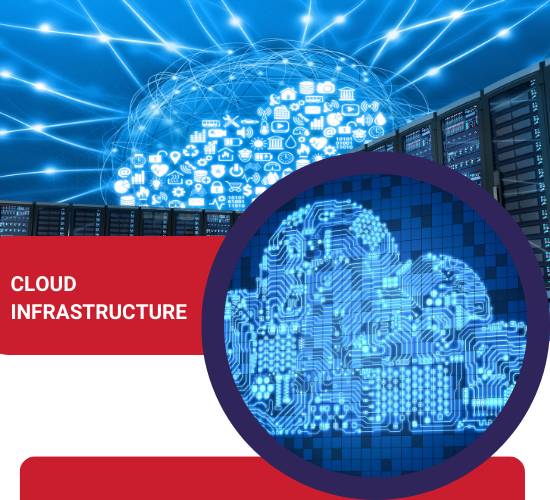Cloud Infrastructure is the collection of hardware and software elements such as computing power, networking, storage, and virtualization resources needed to enable cloud computing.


By leveraging cloud infrastructure, organizations can acquire data storage and computing capabilities on-demand, precisely when they require them. Instead of investing in on-premise IT infrastructures or leasing data-center space, businesses can now rent cloud infrastructure and the necessary computing Virtual resources emulate physical infrastructure, including memory, network switches, servers, and storage clusters. These resources are crucial for building applications that users can access through the cloud.

Cloud infrastructure encompasses the essential components and elements necessary for delivering cloud computing services. It comprises computing power, networking infrastructure, storage systems, and an interface that allows users to access virtualized resources.

Cloud infrastructure is available for private, public, and hybrid cloud systems, catering to diverse organizational needs. It can be obtained through cloud providers and various cloud infrastructure delivery models, allowing businesses to choose the most suitable option for their specific requirements.
We understand that a well-designed and robust cloud infrastructure is crucial for businesses seeking to thrive in the digital era. Let us guide you through the essential components of cloud infrastructure that can revolutionize your organization’s operations.

Cloud infrastructure provides businesses with the ability to scale their resources up or down based on demand. This scalability ensures that businesses can quickly adapt to changing needs, handle peak workloads efficiently, and avoid over-provisioning or underutilization of resources.
Cloud infrastructure eliminates the need for upfront capital investments in physical infrastructure and allows businesses to pay only for the resources they use. This pay-as-you-go model helps reduce hardware and maintenance costs, and organizations can achieve cost savings by scaling resources as needed.
Cloud infrastructure enables users to access data and applications from anywhere, anytime, using any device with an internet connection. It provides the flexibility for remote work, collaboration, and access to critical information, promoting productivity and efficiency.
Cloud infrastructure offers built-in disaster recovery and backup capabilities. Data is replicated across multiple servers and locations, ensuring data redundancy and minimizing the risk of data loss. In the event of a disaster, organizations can quickly recover their data and resume operations.
Cloud infrastructure providers invest heavily in robust security measures and compliance certifications. They employ dedicated security teams, implement encryption, access controls, and regularly update their security protocols. This helps businesses enhance their security posture and ensure compliance with industry regulations.
It’s crucial for businesses to evaluate these advantages and disadvantages of cloud infrastructure in the context of their unique needs, resources, and risk tolerance. Partnering with an experienced cloud infrastructure provider, like Mericas can help navigate these considerations and ensure a smooth transition to the cloud while maximizing the benefits and minimizing potential drawbacks.
Fill out the form below and we will get back to you within the next 24
hours to complete the order, and then you’re all set to get started!